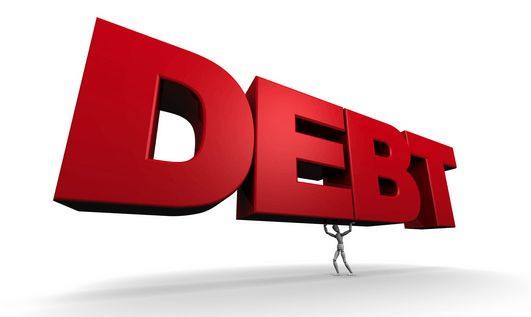The World Bank President David Malpass is asking Ghana to reduce its non-concessional borrowing because of its impact on future generations.
According to him, “holding down the non-concessional debt means higher interest rate debt because that burdens the further generations.”
Mr Malpass was responding to a question posed by Joy Business’ George Wiafe, who participated in the virtual Media Roundtable for some journalist in Western and Central Africa.
Ghana’s Debt concerns
The World Bank’s President call is coming when Ghana has been classified as high risk of debt distress country by the World Bank.
Ghana’s Debt Stock, according to the Bank of Ghana has reached ¢291 billion ending December 2020. This represents 76.1% of Ghana’s Debt to GDP Ratio.
There have been several proposals on how government should move fast to deal with the situation. While government on the other hand claims that it’s working to deal with the challenge.
President Akufo Addo, recently at a meeting in Paris, called for debt cancellation for some African countries.
But in response to some of these proposals, the World Bank President talked about some initiatives that the Bank understands can be used to deal with this challenge.
The President revealed that the Bank supports the G20’s Debt Service Suspension Initiative—or DSSI—which has provided fiscal space to countries to cope with the impact of the pandemic.
Sixteen countries from West and Central Africa have requested to participate in the DSSI as of April 2021.
However, participation by major creditors has been only partial and continues to allow large profits to be withdrawn from Africa even during the crisis, with no prospect of debt cancellations.
He noted that a “permanent solution is necessary to reduce the stock of debt in the poorest countries. The World Bank and IMF are closely coordinating to support the G20 in implementing the G20’s Common Framework for debt reduction.”
The World Bank and Ghana’s debt transparency
In response to another question by the JoyBusiness reporter, Mr Malpass noted that there is also the need for government to be transparent with both the debt taken on the investment projects that that debt might fund.
The World Bank president also revealed that it is also working closely with World Bank and IMF “as we both look to have countries have sustainable debt burdens rather than unsustainable debt burdens.”
Ghana’s new partnership agreement with the World Bank
The World Bank has announced that it is currently preparing a new country partnership framework in Ghana with the new government in place.
Speaking alongside the World Bank President, the World Bank Vice President for West and Central Africa Ousmane Diagan noted, “we are also using a very inclusive approach to make sure that the private sector and the civil society will be part of the dialogue that will lead to preparing a new strategy.”





